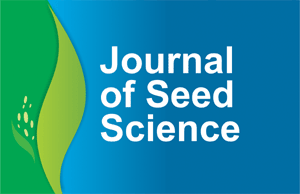During seed extraction in fleshy fruits, some procedures are necessary to ensure seed quality and minimize deterioration and microorganism activity; also seeds extracted under moist conditions need special care when drying. The objective of this study was to evaluate the physiological quality of eggplant seeds submitted to different extraction and drying methods. In the first study, whole eggplant fruits were mechanically crushed and then fermented for 0, 24 and 48 hours, with and without applying hydrochloric acid during seed extraction. In the second study, seeds were extracted in a pepper peeler and then immediately washed in water and submitted to the following drying methods: Sun/24 h; Sun/48 h; 32 °C/24 h; 32 °C/48 h; 38 °C/24 h; 38 °C/48 h; Sun/24 h + 32 °C/24 h; Sun/24 h + 38 °C/24 h e 32 °C/24 h + 38 °C/24 h. The treatment efficiency of both experiments was evaluated from the following tests: seed weight, germination, first count, accelerated aging and seedling emergence. The results suggest that fermentation and applying hydrochloric acid to pulp/seed reduce the physiological seed quality. All drying methods reduced the seed moisture content permitting adequate storage and maintenance of seed physiological quality.
Solanum melongena; fermentation; hydrochloric acid; moisture; storage
